By Amit Kumar, TwoCircles.net
Patna: Savita Ali remembers the time when she was in school, in a village called Naraina, district Panipat. She had just given her Class 10 exams, and like most of the girls in her village, that was supposed to be the end of her education. However, Savita was not ready to give up. Growing up in a family that converted to Christianity three generations ago (she converted to Islam following her marriage) Ali knew that despite her religion, she was, like the thousands of Dalit families around her, marginalised and without a voice. “As we went to higher levels in education, the number of women students kept dropping drastically,” she says, adding, “In Class 12, less than a dozen girls went with me to study; by the time I was in graduation, the number was down to single digits. Being a women in rural Haryana, your individual identity was so immaterial to the society that even having a election card was looked down upon. ‘What would an unmarried girl would do with an election ID’ we were told,” she says.
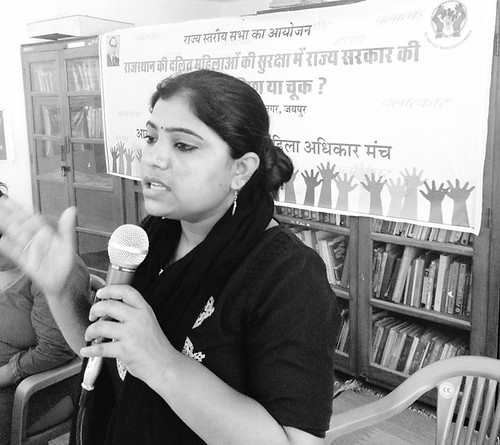
A little over a decade has passed on since then, but for Savita, who now lives in Bihar, the reality remains the same: Dalit women, whether in Haryana or Bihar, remain the most marginalised within the marginalised communities, and this is the issue that has made Ali work day and night to fight for them, first as a Dalit activist and now as an activist/lawyer.
Ali thanks her father, who worked in a bank and acknowledged her wish to do graduation. However, even there, she had to partially give in to patriarchy. “I did well in Sanskrit during my school and I was considering studying Sanskrit, but my father made it clear that I had to study Maths. When I could not do well in Maths, I was moved to economics,” she says. She took up admission in a girls’ college in Samalakha, and in 2007, completed her graduation.
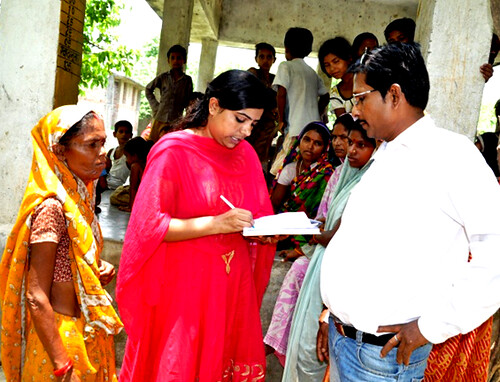
Ali has not looked back since then.
Confronting the harsh reality of caste atrocities in Haryana
In 2007, she joined National Campaign for Dalit Human Rights, and remembers visiting Delhi for the first time for her interview. “People said Delhi was close to Panipat, but I had never visited the city; it was an amazing experience, but it also showed the huge difference in the societies that we lived in,” she says. She became a programme coordinator and was involved in training Dalit women, along with conducting various capacity building measures.
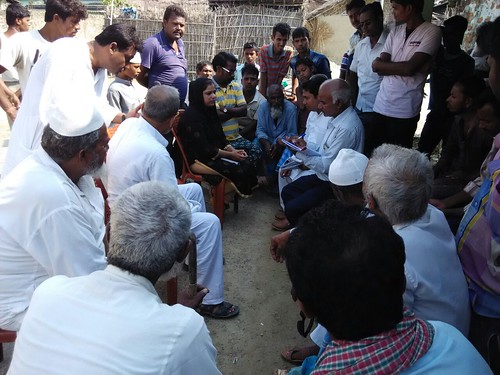
However, she took little time to realise that even in an organisation which worked for Dalit emancipation, there was strong patriarchy. “Our male members would act like we knew nothing; like we had to be hand-held in all our endeavours. Yes, I was an economics graduate with little experience in the field, but I did not need anyone to tell me how caste had wrecked havoc with our (Dalit) lives,” she says. Within a few months, she realised that there were almost no Dalit women leaders in Haryana, who could take up the numerous issues of assault on women. Ali talks of one of her first experiences of meeting a girl who had been raped. “I was so ashamed to even narrate the story of what happened to her, to our male colleagues, that I would give it to them in writing,” she says.
In 2008, irritated by the patronising attitude of her male colleagues, Ali joined All India Dalit Mahila Adhikar Manch (AIDMAM) and started focussing on developing women leaders in the community. She remembers one of her first steps were to get young women to rise up against the discriminations they faced. “We would visit families of young girls, and talk to their families. I often spent a couple of weeks in their homes to convince their families,” Ali adds.
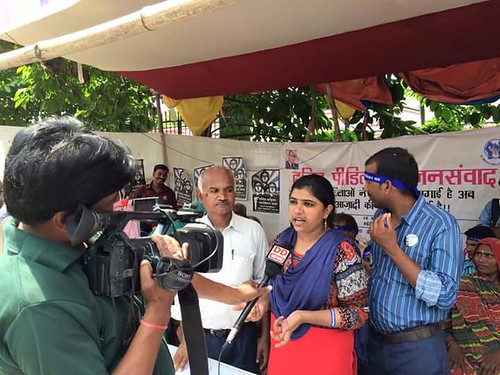
The ground realities also taught her that Dalit women remained the easiest targets for harassment and assault at the hands of both the upper castes and the administration. “In 2008, there was a case in Panipat, where a house was burgled. The owner simply told the police that he suspected his maid, staying in the servant quarters, of stealing. There was no FIR, but the police came to the house with sniffer dogs. They beat up the girl and one of her friends who had nothing to do with the case. Both were beaten up mercilessly, and kept in police custody for a couple of days,” she says. “What was their fault, apart from being Dalits?” she asks.
The laws, and the way they were used almost always to attack Dalits, led her to understand that she too needed a legal degree to counter the extremely biased administration. During the next three years, she worked on a number of atrocity cases against Dalits, and thanks to her, a number of women joined AIDMAM and spoke against these cases. “The other thing I learnt during my stint was that even when a Dalit woman gets some kind of power (pointing out the Dalit Sarpanches) the actual command remains in the hands of men, mostly non-Dalits. In Sonepat for example, a 72-year-old Dalit woman was arrested for ‘swindling’ Rs 7,000 and kept in jail for 25 days. She was an uneducated person with bad hearing capacity. How could she have known who took the money? But since she was Dalit, she was arrested,” Ali adds.
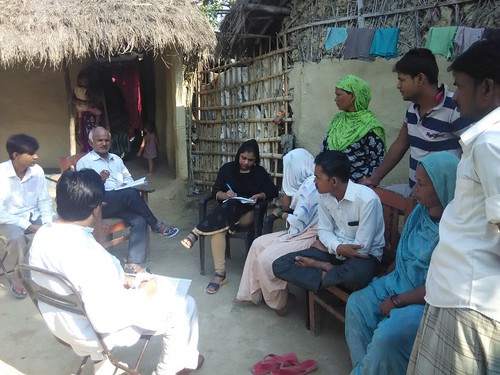
From 2010, Ali became much more active once she had acquired a law degree, but that also meant she was at the receiving end of constant threats; including her life. “There were times when I was not sure if I would be mowed down by a car while crossing a road. I was constantly scared, but thanks to my family, I never thought of giving up my work. I was so harassed, that I went into depression and stayed out of Haryana for six months, in UP. However, when I came back, to my dismay I found out that many cases I were working upon had reached an ‘agreement’ and the culprits had walked free. I decided that day that I will never again leave my cases, even if my life was at risk,” she says.
A new state, the same old issues
In 2013, she married Safdar Ali from Bihar and moved to Patna. However, the treatment of Dalits in Bihar was no different from Haryana, and to ensure that she keeps working on Dalit upliftment, she joined Human Rights Law Network. After working for two years with the legal research team, she joined AIDMAM again last year, and has been trying to document and fight the various cases of atrocities. “The biggest issue, having worked for so long in this field, is that the law remains completely in the hands of people who are looking to suppress Dalit voices and issues. I will give you an example. On September 5, there was a day-long event in Patna, where we chronicled 21 cases of atrocities against Dalit women. We found out that in certain cases, even when the culprits are booked, they are given bail in the police station itself! Cases under the SC/ST PoA Act are non-bailable and even the judiciary cannot give them bail. Then how can the police do so?” she says.
Then, there is the issue of Muslim women, who Ali says fare no better, if not worse, than Dalit women. It is to look after this issue, that Dalit and Muslim women from Bihar have got together to set up Dalit Muslim Mahila Manch, and the organisation will address the issues and problems that the women in these two communities face. Although Ali has a new home, she continues to work with the same zeal. “Initially, I was a little lost in Bihar, but now I believe that irrespective of what state I live in, the problems remain the same. I will continue to raise these issues. Not everyone likes them, but that does not mean we will remain quiet,” she says in a defiant tone.
Related:

